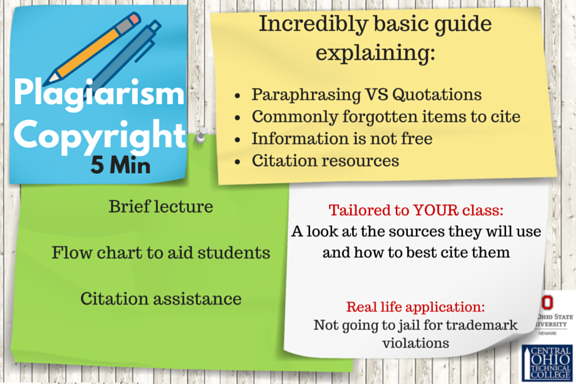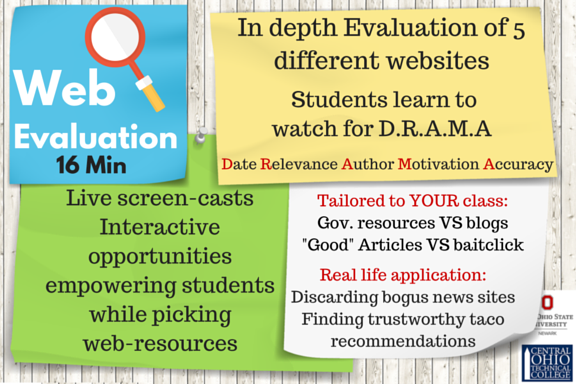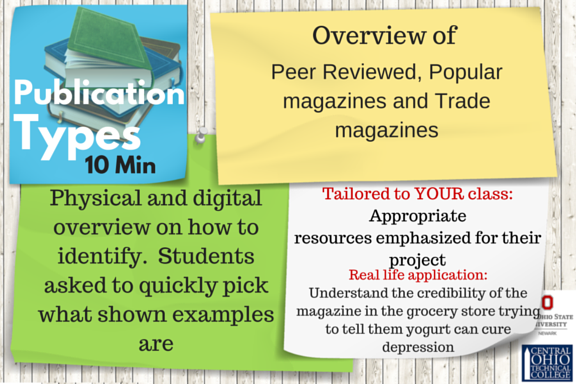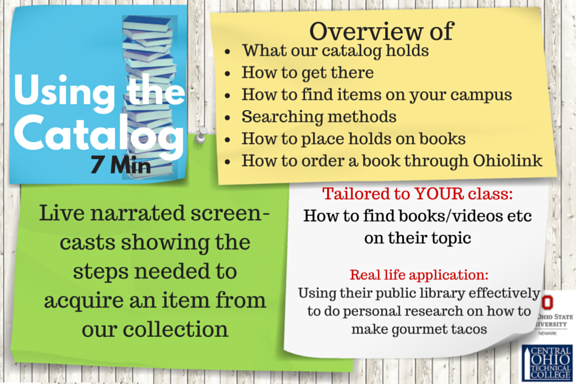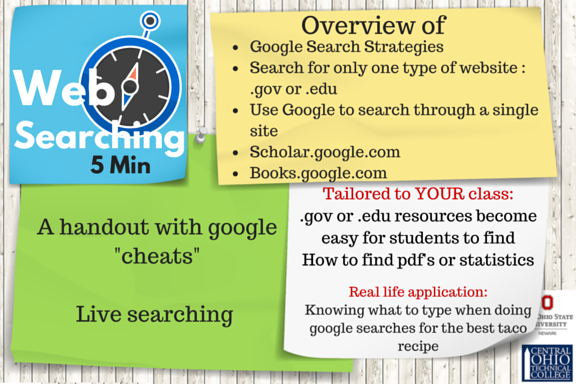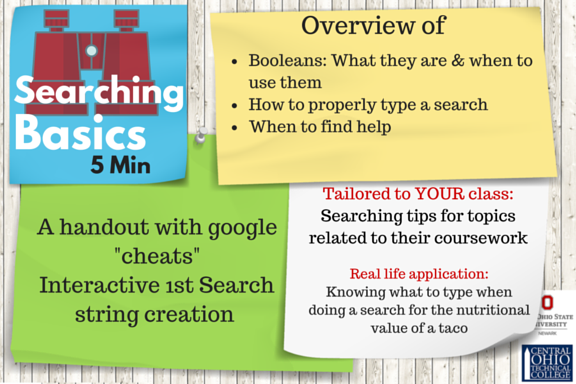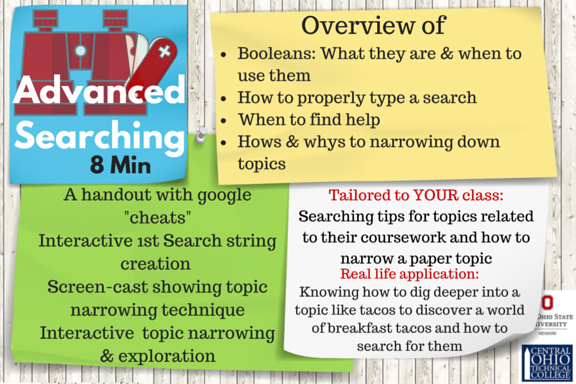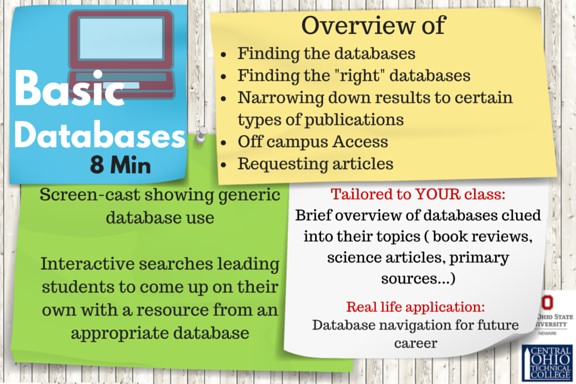General Librarianship
I make it my job to go above and beyond in any community I work in, I take equity as the forefront of my beliefs. I understand that the institution I currently work in serves an incredibly diverse base of students and instructors, coming in with a wide range of experiences and opportunities. It is the ever-present reality of these facts that guide my steps as a librarian, finding student’s and instructor’s needs where they are at, acknowledging the knowledge they bring to the table, and stepping in to hand them new tools for advancement in both educational and personal goals for both research and teaching alike.
What the students and faculty can't see is the work I do behind the scene. I am constantly on the lookout for more cohesive ways to display information for them relevant to their course work. Information Literacy classes are good, but they could be improved to better market to the student demographic. What new tools are there? What new techniques? What integrations with our LMS have been released? Staying afloat of relevant scholarship and technologies is a weekly process that has allowed me to gain the position within my library as the one who knows the best technology fit for the proposed job at hand.
Bringing Information Literacy introductions to the web allows instructors to seamlessly incorporate them into their own courses. This will allow online students to feel they are just as prepared and valued as on-campus students, give transfer students the same shake, assist non-traditional students in getting up to speed with the changed educational environment, and allow instructors to continuously utilize and embed relevant librarian made resources in their course work that students need them the most. Web resources allow for asynchronous work to be done, allowing students to take their time with resources, and of course, web tutorials can be viewed as many times as necessary allowing students to reference back as needed through a semester or an assignment.
Reference
When working reference my goal is to be not just informative but welcoming. I want students to know they can ask me anything, and see that if I don't know an answer, I know how to get it, or an explanation of why there isn’t one! I understand that a student, part or full time, may also be holding down a full-time job, making their time incredibly precious. As a result in every interaction, I try to be concise as possible without sacrificing a welcoming atmosphere. The goal at the reference desk is to bring confidence into the student that they can replicate their experience when alone, working to not just help a student find a resource or understand a citation style, but give them the resources and experience to search with an expert guiding the way. A campus wants students who are confidently independent in their researching skills, and the key to lives in a reference desk experience, and the way that Information Literacy is taught.
Teaching
I believe that Information Literacies are an essential life skill that should be woven into the very life of all programs within a University. While that often is not the case in institutions, it should be the library's goal when conducting outreach to faculty to begin this infiltration of sorts. One subject librarian cannot reach all, although this shouldn’t stop them from attempting. It is the library's role of showing the teaching faculty and staff the advantages of incorporating Information Literacy skills into their own assignments and assessments.
Although the ideal method to teach information literacy is top-down, bottom-up is still as vital and impactful on students. In the case of the singular library led sessions dealing with topics of Information Literacy, it is also my belief that when taught wrong, they are found by the students to be yet another colossal waste of time. It is this reason why I tailor each class to individual projects and topics. While this seems like an obvious stance, I do so in a manner that “chunks” the data being parsed to the students in meaningful bits, while incorporating easily reusable and re-themeable digital learning objects that encourage active learning. Through these tailored classes, I seek to engage the students in a more meaningful and transparent manner, thus making it a point to not only make the process enjoyable but relevant to their academic needs. I believe that librarians need to do this more often and not be afraid to stray from the standard teaching methods for "one-shot" classes. Just because you are limited on time, shouldn't limit the mind to creative ways to make the most of it.

